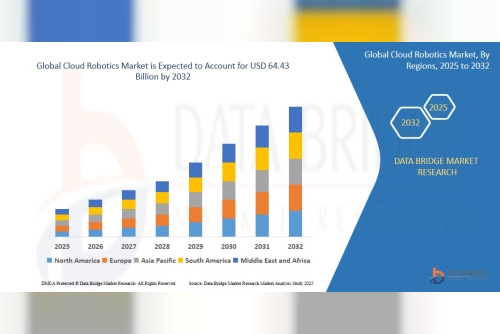The construction industry is evolving at an unprecedented pace, with digital technologies driving efficiency, safety, and profitability across operations. Among these advancements, fleet management software has emerged as a critical tool for modern contractors. Managing a construction fleet—comprising trucks, excavators, cranes, loaders, and other heavy machinery—requires precision and coordination.
Manual tracking, paper-based reporting, and reactive maintenance no longer suffice. Contractors are now turning to data-driven fleet management solutions that deliver real-time visibility, optimize routes, improve fuel efficiency, and ensure regulatory compliance. This transformation not only enhances productivity but also positions construction firms for long-term sustainability in a highly competitive environment.
1. The Growing Importance of Fleet Management in ConstructionReal-time visibility and asset controlIn large construction projects, tracking multiple vehicles and heavy machinery across various sites can be chaotic. Fleet management software provides centralized control, enabling real-time tracking of each asset’s location, usage, and status. Contractors can easily monitor vehicle health, availability, and performance from a single dashboard, reducing downtime and enhancing resource utilization.
Rising operational costs and inefficienciesFuel, maintenance, and labor costs account for nearly 60% of a construction company’s operating expenses. Without automation, mismanagement and underutilization often lead to unnecessary expenses. Fleet management tools identify inefficiencies through data insights—helping contractors streamline operations and eliminate redundant costs.
Compliance with environmental and safety regulationsWith increasing global emphasis on sustainability and worker safety, construction firms face stricter regulations. Fleet management software helps monitor emissions, track compliance records, and ensure safety protocols are consistently met—reducing the risk of penalties and improving corporate responsibility.
Transition from manual to automated managementThe shift toward automation in construction is reshaping the industry’s approach to fleet management. Cloud-based solutions now integrate seamlessly with on-site IoT sensors and GPS trackers, providing automated alerts for maintenance, performance, and scheduling. This transition eliminates manual bottlenecks and enhances decision-making accuracy.
Enhancing project timelinesEfficient fleet management contributes directly to meeting project deadlines. By optimizing equipment allocation and minimizing idle time, contractors can maintain consistent productivity levels across multiple sites—reducing overall project delays and improving client satisfaction.
Boosting competitiveness in a digital eraAs construction firms adopt automation and data analytics, those still relying on manual systems risk being left behind. Digital fleet management is no longer a luxury—it’s a necessity to stay competitive, agile, and cost-efficient in an evolving market.
2. How Fleet Management Software Streamlines Construction OperationsCentralized fleet tracking and coordinationFleet management software consolidates all vehicle and machinery data into one platform. Contractors gain complete visibility into asset utilization, routes, and worksite performance, allowing for better coordination among drivers, operators, and supervisors across multiple job sites.
Automated scheduling and dispatchBy automating dispatch operations, software ensures that equipment and vehicles are assigned efficiently. It minimizes idle times, reduces overlapping assignments, and ensures that resources reach the right site at the right time—saving fuel and boosting productivity.
Predictive maintenance alertsConstruction machinery operates under extreme conditions, leading to frequent wear and tear. Fleet software uses predictive analytics to monitor equipment health in real time and send alerts before failures occur. This proactive maintenance approach minimizes downtime and extends equipment lifespan.
Route optimization for logistics efficiencyOptimized route planning reduces fuel consumption, delivery times, and driver fatigue. Fleet management software leverages GPS and AI to recommend the most efficient travel paths, taking into account road conditions, distance, and project timelines.
Seamless integration with ERP systemsIntegrating fleet management software with ERP systems allows for better synchronization between procurement, maintenance, and financial departments. Contractors can view cost reports, billing data, and asset depreciation in real time—creating a fully transparent workflow.
Real-time performance reportingDetailed analytics dashboards provide contractors with insights into performance metrics such as fuel efficiency, idle time, and job completion rates. This data helps in evaluating workforce productivity and aligning operations with project goals.
3. Benefits of Fleet Management Software for ContractorsCost efficiency through data-driven insightsOne of the most significant benefits of fleet management software is cost reduction. By tracking resource usage, fuel consumption, and downtime, contractors can identify areas of waste and implement corrective actions, resulting in higher profit margins.
Improved worker safety and accountabilityFleet systems track driver behavior and safety metrics—such as speeding, harsh braking, or unauthorized vehicle use. Automated alerts and digital logs help maintain accountability and reduce accident risks, protecting both employees and assets.
Streamlined asset utilizationData analytics ensure every piece of machinery or vehicle is optimally utilized. Contractors can easily identify underused equipment, reassign assets to other projects, and prevent unnecessary purchases—maximizing ROI on every investment.
Enhanced client satisfaction and transparencyFleet management systems enable contractors to provide clients with accurate updates on project timelines, vehicle status, and delivery schedules. This transparency strengthens client trust and fosters long-term business relationships.
Reduced environmental footprintBy minimizing fuel consumption, optimizing routes, and monitoring emissions, contractors can significantly reduce their environmental impact. Fleet management solutions help align construction firms with sustainability goals and green construction practices.
Integration with Transportation software development servicesPartnering with expert providers of Transportation software development services helps contractors customize their fleet systems to meet industry-specific needs—whether it’s integrating logistics, predictive analytics, or IoT sensors for smarter data-driven construction management.
4. Key Features That Define the Future of Construction Fleet SoftwareIoT-enabled asset monitoringIoT sensors embedded in construction equipment send live data about engine health, fuel levels, and performance. This feature allows real-time visibility and faster response to potential breakdowns—keeping projects on schedule.
Artificial intelligence for predictive decision-makingAI analyzes vast amounts of operational data to predict potential risks, forecast maintenance needs, and recommend resource optimization strategies. AI-powered insights improve overall efficiency and reduce maintenance-related expenses.
GPS and telematics integrationAdvanced GPS and telematics systems enhance tracking precision, allowing project managers to monitor every vehicle or equipment movement. This technology ensures route accuracy, asset security, and efficient fleet allocation.
Cloud-based scalability and remote accessCloud deployment allows contractors to access data anytime, anywhere. Multi-site contractors can manage entire fleets remotely—improving flexibility and responsiveness, even in distributed project environments.
Advanced analytics and reporting toolsCustomizable dashboards provide actionable insights on costs, asset health, and driver performance. These analytics empower managers to make informed business decisions and optimize operational planning.
Automation and workflow managementAutomation simplifies repetitive tasks such as reporting, scheduling, and compliance documentation. The result is reduced administrative workload and more focus on strategic construction activities.
5. The Future of Construction Fleet ManagementAI and machine learning integrationAI and ML are poised to revolutionize fleet management in construction. They’ll predict equipment failures, suggest maintenance schedules, and enable automated decision-making for improved operational continuity and cost efficiency.
Autonomous and electric construction fleetsThe rise of autonomous and electric vehicles in the construction sector promises a future of reduced fuel costs and lower emissions. These fleets will operate with minimal human intervention, driving sustainability and productivity.
Integration with digital twins and BIMCombining fleet data with Building Information Modeling (BIM) creates a virtual replica of the job site. This integration enhances coordination between vehicles, equipment, and workers for more accurate project execution.
Enhanced cybersecurity for fleet dataAs fleets become more connected, data protection becomes critical. Future solutions will integrate advanced cybersecurity frameworks to safeguard sensitive operational data from cyber threats.
Global adoption of unified platformsThe next generation of fleet software will unify multiple systems—inventory, dispatch, maintenance, and logistics—under one intelligent platform, simplifying complex workflows and improving cross-departmental communication.
Data-driven sustainability initiativesSustainability will remain at the core of digital transformation in construction. Fleet systems will monitor and minimize carbon emissions while aligning with environmental regulations and corporate sustainability goals.
6. Challenges and Best Practices for ImplementationHigh initial investment and ROI concernsImplementing fleet management software involves upfront costs for setup, training, and integration. However, the long-term ROI—achieved through savings on fuel, maintenance, and downtime—justifies the investment.
User adoption and trainingResistance to new technologies is common among construction staff. Providing proper training, involving operators early, and showcasing efficiency benefits are key to achieving successful adoption.
Data integration with existing systemsMany contractors already use ERP, CRM, or project management tools. Integrating these with new fleet systems requires strategic planning and the right software expertise to avoid data silos.
Choosing the right vendorSelecting a vendor with construction domain experience and post-deployment support ensures success. Look for proven scalability, robust analytics, and customizable modules that adapt to business growth.
Ensuring data accuracy and transparencyFleet management relies on precise data. Setting validation protocols and real-time synchronization mechanisms ensures accurate decision-making and minimizes operational discrepancies.
Continuous system upgradesWith evolving technology, periodic upgrades are essential. Regular system updates enhance performance, improve security, and keep the software aligned with new industry standards.
ConclusionFleet management software is no longer an optional investment—it’s an operational necessity for modern construction firms. From improving visibility and efficiency to reducing costs and enhancing safety, digital fleet systems deliver measurable business value.
By adopting innovative solutions, integrating IoT and AI technologies, and partnering with specialists in Transportation software development services, contractors can future-proof their operations, boost competitiveness, and ensure sustainable growth in the construction sector.
The future of construction belongs to those who embrace technology today—and fleet management software is at the heart of that transformation.












